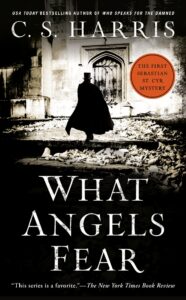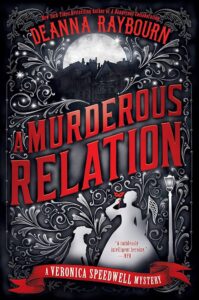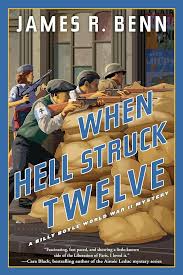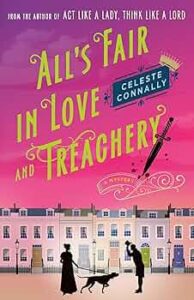When I began my research for All’s Fair in Love and Treachery, the second book in my Lady Petra Inquires series, I already had two mysteries teed up for my plot. Both had been created in the epilogue of my first book, Act Like a Lady, Think Like a Lord. One was of the suspicious death of the matron of an orphanage for young girls, and the other was that of a stunning revelation about Petra’s paramour, Duncan Shawcross—but I won’t spoil it other than that!
By the happenstance that is my pantser writing style, my first-book epilogue put my second book starting in June of 1815. While I vaguely recalled reading in my previous research moments that the end of the Napoleonic Wars happened sometime that summer, I didn’t think about it at the time. And I certainly didn’t think about adding in a third mystery for Lady Petra to solve.
Yet I felt a little frisson when I not only rediscovered that the Battle of Waterloo happened on June 18, 1815. Then there was the story of how and where the news reached London and was delivered to the Prince Regent (at a dinner party in St. James’s Square on a sultry night). But most fascinating was the three days of gleefully chaotic celebrations that followed the announcement of the war’s end, where the entire city celebrated with dancing in the streets and citizens of all classes mixing, the rules of propriety temporarily abandoned.
Soon, I had more plot-thoughts brewing, especially when I found articles that discussed how the flagrant spending of both Queen Charlotte and her son, George, the Prince Regent, was causing a further increase in anti-monarchy sentiments. Not only that, but many of these associations, as they were called, advocated for not just turning the United Kingdom into a republic like France or the United States, but they specifically encouraged violence as a way to carry out their aims.
And suddenly, Lady Petra had three mysteries to solve, and three days to do so. As a fan of fast-paced, twisty thrillers where the protagonist has a limited amount of time to make certain the worst-case scenario doesn’t happen, it only made writing All’s Fair in Love and Treachery even more fun for me. I confess I somewhat put Petra through the wringer in doing so, but it was all in the name of a hopefully fun read.
Political upheaval and the desire for change is, of course, nothing new. Yet when dangerous plots and discourse are squarely in the past—and the reader can become an armchair government agent as they race alongside the main character to thwart a nefarious plot while already knowing the country in question’s future—I think it somehow makes for a more entertaining read without sacrificing the heart-pounding moments. That’s because the author can use real-life events to ramp up their story’s, and their protagonist’s, fear, uncertainty, and the urgency to not let either the bad guys (or simply the worse of two evils) succeed.
As such, here are seven historical mysteries I enjoyed reading—from cozy to tense and atmospheric—that range from the Regency era (1811–1820), Victorian era (1837–1901), the Roaring Twenties and the Thirties, and World War II (1939–1945) wherein each uses political upheaval or intrigue to add extra suspense to their plots.

C.S. Harris – What Angels Fear (Sebastian St. Cyr, book 1)
Set at the beginning of the Regency period, in 1811, the threat of revolution in England and a murder sends former soldier and brilliant aristocrat Sebastian St. Cyr, Viscount Devlin, on the run when he is falsely accused. With the future of the monarchy at stake, as well as Sebastian’s own life, he enlists the help of his former paramour, Kat Boleyn, to help prove his innocence and hunt down the real killer.

Deanna Raybourn – A Murderous Relation (Veronica Speedwell, book 5)
It’s 1888—within the late Victorian era—and Veronica Speedwell and her colleague Stoker have been enlisted to protect the monarchy by stopping a scandal involving Queen Victoria’s grandson, Prince Albert Victor. Even worse, it may be possible that the prince could be the serial killer all of London has come to fear and known as Jack the Ripper. With threats and secrets galore, Veronica and Stoker must prove what is real and what is not before it is too late for all of them.

Agatha Christie – The Secret Adversary (Tommy and Tuppence, book 1)
In 1920 London, the Great War is over, but when friends Prudence “Tuppence” Cowley and Tommy Beresford discover they both require jobs, they style themselves The Young Adventurers and advertise their services. Instead, they end up working for the British government, tasked with thwarting spies and discovering the identity of the nefarious criminal known as Mr. Brown—a mission they might just pay for with their lives.

Rhys Bowen – A Royal Pain (Her Royal Spyness, book 2)
Despite it being 1932 and women having jobs, it will no do for Lady Georgie, cousin to the King of England, to be employed. Thus, Queen Mary asks Georgie to look after Hanni, a Bavarian princess, in hopes that Hanni and the rakish Prince Edward might fall in love, and he might leave the divorcee Wallis Simpson. But when Hanni and Georgie find a body in a bookstore and Georgie begins to worry that Hanni may have ties to Communism, Georgie must puzzle out the truth before the so-called princess can wreak deadly havoc on the British monarchy.

Jacqueline Winspear – A Lesson in Secrets (Maisie Dobbs, book 8)
In 1932, the Nazi Party is beginning to gain power just as Maisie Dobbs accepts an undercover assignment as a junior lecturer at Cambridge University, though she is really working for the Special Branch of Scotland Yard. Her job is to observe activities that could negatively affect the British government. But when a Cambridge pacifist is murdered, Maisie is forced to face harsh truths about her own country’s conduct during World War I, even as she works to stem the tide of Nazi influence rising in Great Britain.

Julia Kelly – A Traitor in Whitehall (The Parisian Orphan, book 1)
As the war heats up in 1940, Evelyne Redfern, once known as “the Parisian Orphan,” has barely begun working in Churchill’s cabinet war rooms as a secretary when she discovers one of the girls she works with murdered. A fan of classic murder mysteries, Evelyne takes it upon herself to look into her co-worker’s death, and finds herself being thwarted at every turn by David Poole, the minister’s aide—until she discovers David is there to uncover a government traitor. The two must then work together to keep England’s secrets safe from the enemy as they risk their lives to uncover a killer.

James R. Benn – When Hell Struck Twelve (Billy Boyle, book 14)
The war is still raging in Europe in August of 1944, and Boston-born U.S. Army detective Billy Boyle is tasked with hunting a French traitor. Going by the code name Atlantik, the turncoat is charged with giving secret Allied information to the Germans in occupied Paris. Though when it turns out the Allied plans were deliberately leaked to thwart the German advance, Billy and his Polish cohort Kaz then must work with the French Resistance to prevent Atlantik’s capture. With the game proving ever more deadly, Billy and Kaz are forced to walk a fine line of truth and lies in order to keep the Allies from losing both ground, and the war itself.
***


















